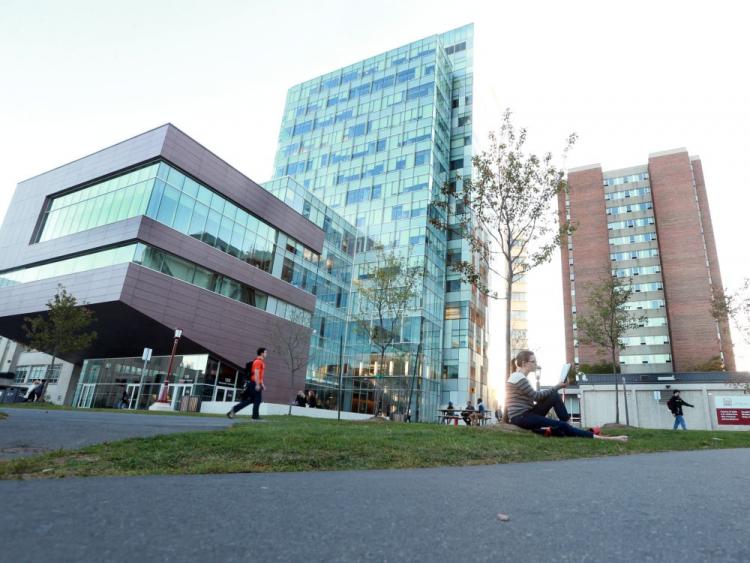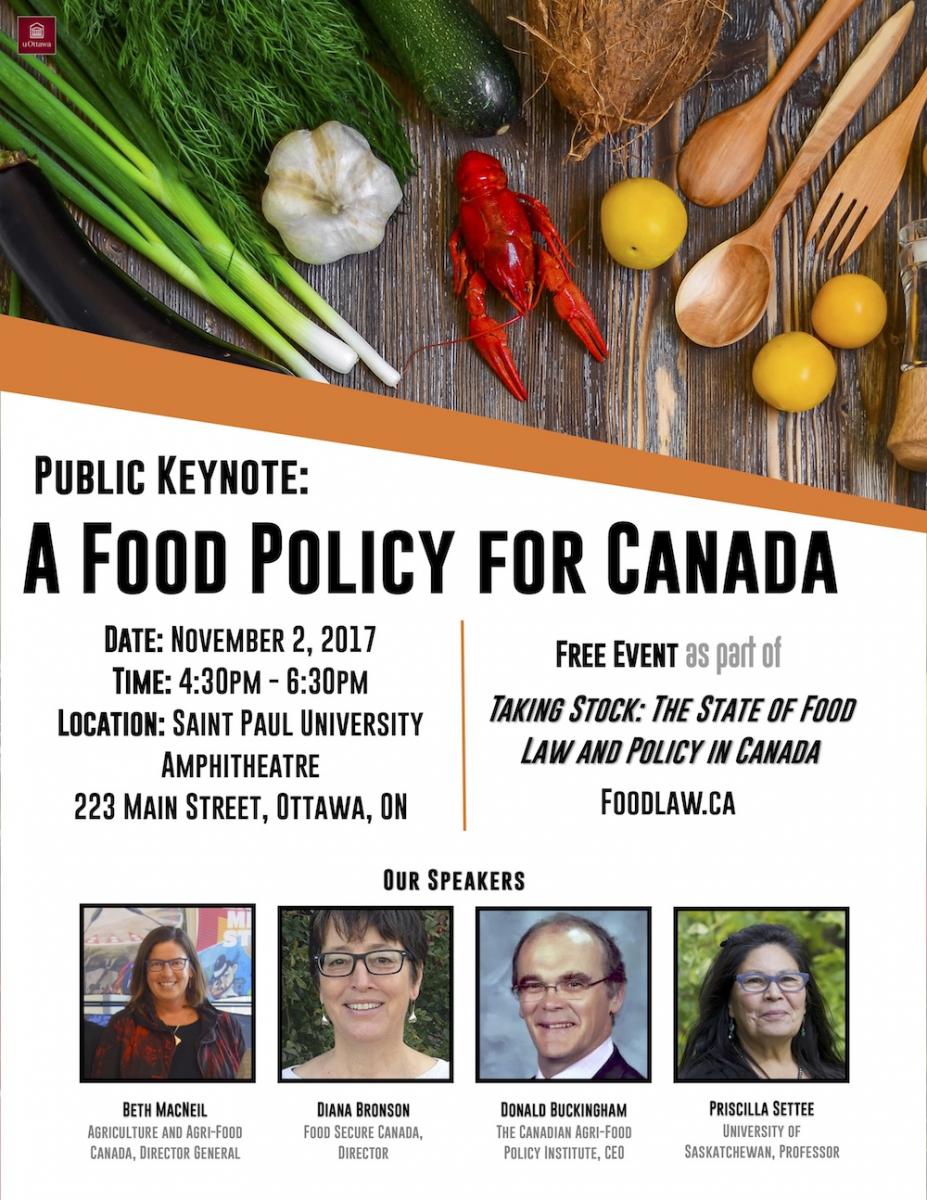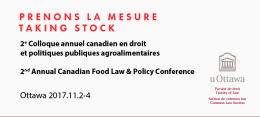What’s law got to do with it: Taking Stock 2017 food law conference

Canada’s emerging community of lawyers, academics and other professionals working in the field of food law and policy gathered in Ottawa in early November for their 2nd annual conference, “Taking Stock”. With the government currently drafting A Food Policy for Canada what better time to reflect on the legal, regulatory and policy instruments that govern our food system, and the values they embody - or don’t.
With an incredible diversity of topics and speakers, there was a lot to take in!
A Food Policy for Canada
The opening plenary focused on the upcoming Food Policy for Canada and offered four distinct perspectives. Diana Bronson, Executive Director of Food Secure Canada (FSC), called for the right to food to be at the heart of the national food policy, asserting that Canada not only has an international legal obligation to implement the right to food (article 11, International Covenant on Economic, Social and Cultural Rights), but with four million food insecure Canadians, a moral one as well.
Beth McNeil, the Director General managing the food policy file at Agriculture and Agri-Food Canada (AAFC), provided an update on the government’s progress following a summer of consultations. The much maligned reference to “affordable food” in the access to food pillar of the policy has been replaced by food security, along with a recognition that income is key. In more good news, she confirmed that an inclusive advisory mechanism for the long-term is envisaged. FSC has long campaigned for this, specifically a National Food Policy Council.
Don Buckingham, CEO of the Canadian Agri-Food Policy Institute (CAPI), expressed concern over whether a coherent food policy can be delivered by the tight deadline of May 2018. He wondered how the four pillars - access to food, health, environment and growth - could be balanced especially since an ambitious $20 billion export growth target for agriculture has already been established in the budget.
According to Dr. Priscilla Settee, professor in the Department of Indigenous Studies at the University of Saskatchewan, food policy is, at its root, a fight about power relations, a fight which Indigenous peoples have endured since the arrival of settlers. During the conference other speakers emphasized that much of the dominant food system is based on a binary worldview that places humans above all other life forms. As part of a commitment to Truth and Reconciliation, a return to a more holistic planetary view common to many Indigenous perspectives was proposed.
Responding to a critique of the omission of gender, the plenary speakers readily agreed that food policy is gendered in many dimensions. McNeil revealed that 75% of respondents to AAFC’s online consultation were female, and 3 out of 4 of the panel were women, leading Bronson to joke that, typically, they had forgotten to talk about themselves.
The right to food: 5 years since the Special Rapporteur’s mission
Another plenary panel explored how food justice and the right to food has progressed since the 2012 mission report from then UN Special Rapporteur, Olivier De Schutter. In the last five years Canada has signed up to two further international agreements that support the right to food - the Paris agreement on climate change, which prioritises safeguarding food security and ending hunger, and the UN Declaration on the Rights of Indigenous Peoples. In addition, Professor Jackman of the University of Ottawa argued that section 7 of Canada’s Charter of Rights and Freedoms already embeds the right to food. The guarantee to “the right to life, liberty and security of the person” is simply incompatible with Canadians going hungry. Despite some recent judicial setbacks, she argued that a strategy based on “security of the person” rather than welfare could still succeed.
Snapshots of panels and workshops
-
Food-health nexus
Our industrial food system is making people sick! This is the core conclusion of the recent IPES-Food report Unravelling the Food-Health Nexus, introduced by its main author, Cecilia Rocha. She explained that alongside expected themes like food insecurity, obesity, environmental contamination and unsafe food, the authors found that occupational hazards along the food chain kill or sicken far too many farmers, fishers and workers, including 200,000 acute pesticide poisoning deaths per annum.
-
Safe food or good food?
Should regulations aim to make food “safe” or “good”? Sarah Berger-Richardson of McGill’s Faculty of Law contended that “safe food” is a less neutral and helpful goal than it first seems. A “good food” framing opens up space to examine social, cultural and contextual perspectives along with science. While fully recognising that it has saved countless lives, science is a more contested space of power and competing values and frameworks than is commonly assumed.
-
Migrant workers - the human cost
Lawyer Shane Martinez, Justice for Migrant Workers, reminded the audience that almost all produce in Canada passes through migrant hands. Yet these workers have no right to organize, can be subject to instant repatriation, often endure dangerous and difficult working and living conditions, pay Employment Insurance despite being ineligible to benefit from it, and face harassment. He argued that migrants workers are indentured labour and until their “permanently temporary” status is changed, there will be no justice in our food system.
-
Animal rights - the humane cost
Lawyer Camille Labchuck of Animal Justice spoke for the 771 million land animals that are killed for food in Canada every year, noting that their lives on farms are federally unregulated. Transport to slaughterhouse regulations are currently under review, but the proposed changes fall (far) short. While welcoming the revised Canada Food Guide’s likely encouragement of plant-based proteins, she lamented the largely unregulated, misleading and misunderstood claims about animal welfare on food labels.
 What’s next?
What’s next?
With this second annual conference a success, and Quebec committed to hosting the third, there is momentum towards creating a National Food Law and Policy Association. Contact conference@foodlaw.ca if you want to get involved and check #takingstock2017 on twitter for more snapshots of the conference.
- Log in to post comments


Comments
criminal defense attorney vancouver wa 98660
However, it must be added, we still live in a delicate criminal defense attorney vancouver wa 98660 world that requires of us to plan for a future while co-existing in the moment.